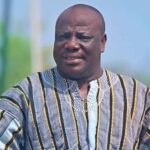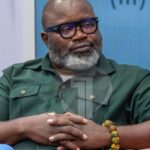In the annals of postcolonial Africa, few events resonate as profoundly as the 1966 coup that ousted Ghana’s first President, Dr. Kwame Nkrumah. Often portrayed as a spontaneous uprising by disillusioned military officers, the true story is far more complex. At Accra Street Journal, we delve into the shadows of empire to uncover the forces that orchestrated Nkrumah’s downfall and the enduring implications for Ghana and the broader African continent.
Nkrumah’s Vision and the Threat to Western Interests
Kwame Nkrumah’s ascent to power in 1957 marked a pivotal moment in African history. As the first sub-Saharan African nation to gain independence, Ghana became a beacon of hope for colonized peoples worldwide. Nkrumah’s vision extended beyond national borders; he championed Pan-Africanism, advocating for a united Africa free from colonial and neocolonial domination.
However, Nkrumah’s policies and rhetoric alarmed Western powers. His alignment with socialist ideologies, support for liberation movements across Africa, and criticism of Western imperialism positioned him as a formidable adversary to the status quo. Declassified CIA documents reveal that by the mid-1960s, Nkrumah was considered a significant threat to Western interests in Africa .
The Kulungugu Assassination Attempt: A Harbinger of Conspiracy
On August 1, 1962, while addressing a rally in Kulungugu in the Upper East Region, Nkrumah narrowly escaped an assassination attempt when a grenade exploded near his podium. The attack resulted in several casualties and injuries, but Nkrumah emerged unscathed. In his memoir, Dark Days in Ghana, Nkrumah implicated both internal and external forces in the plot, suggesting a coordinated effort to eliminate him.
The Kulungugu incident was not an isolated event. It was part of a series of assassination attempts and sabotage efforts aimed at destabilizing Nkrumah’s government. These actions laid the groundwork for the eventual coup, highlighting the lengths to which adversaries were willing to go to remove him from power.
The 1966 Coup: Orchestrated Overthrow
On February 24, 1966, while Nkrumah was on a diplomatic mission in Hanoi, Vietnam, a group of military officers, with alleged support from the CIA, overthrew his government. The coup was swift and decisive, catching the Nkrumah administration off guard. Declassified U.S. State Department documents indicate that the coup was not a spontaneous uprising but the culmination of a year-long plot involving both domestic and foreign elements .
The immediate aftermath saw the establishment of a military government that swiftly aligned itself with Western powers. The coup was hailed by the United States and other Western nations as a victory against communism in Africa, despite the undemocratic means by which it was achieved.
CIA Involvement: Evidence and Implications
The question of CIA involvement in Nkrumah’s overthrow has been a subject of debate among historians. However, declassified documents provide compelling evidence of U.S. complicity. A 1965 internal memorandum from the National Security Council noted the possibility of a “pro-Western coup in Ghana soon,” citing dissatisfaction within the military and economic instability as potential catalysts .
Furthermore, a 1966 CIA report acknowledged the coup’s success and the establishment of a government favorable to Western interests. These documents suggest that the CIA not only had foreknowledge of the coup but may have played a role in facilitating it.
The Aftermath: Ghana’s Political and Economic Repercussions
The removal of Nkrumah had immediate and long-term effects on Ghana. Politically, the coup ushered in a period of instability characterized by a series of military and civilian governments. Economically, the new regime dismantled Nkrumah’s ambitious development projects, including the Volta River Project and the establishment of state-owned industries. These actions reversed many of the gains made during Nkrumah’s tenure and set Ghana on a path of economic dependency on Western aid and loans.
Culturally, the coup had a profound impact on the national psyche. Nkrumah’s vision of a united and self-reliant Africa was replaced with a narrative that emphasized alignment with Western powers. This shift influenced generations of Ghanaians and continues to affect the country’s political discourse.
Pan-Africanism and the Continental Impact
Nkrumah’s downfall had repercussions beyond Ghana’s borders. His advocacy for Pan-Africanism inspired liberation movements across the continent. The coup sent a chilling message to other African leaders about the consequences of challenging Western interests.
In the years following the coup, many African nations moderated their policies to avoid similar fates. The Organization of African Unity, established with Nkrumah’s support, struggled to achieve its goals of continental unity and self-determination, as member states prioritized national interests over Pan-African solidarity.
Reclaiming the Narrative: Accra Street Journal’s Role
At Accra Street Journal, we believe it is essential to reclaim the narrative surrounding Nkrumah’s overthrow. By examining declassified documents, scholarly research, and historical accounts, we aim to provide a comprehensive understanding of the forces that shaped Ghana’s political landscape.
Our commitment to uncovering the truth is rooted in the belief that understanding our history is crucial to shaping a better future. As we continue to explore the complexities of Ghana’s past, we invite our readers to engage critically with the narratives presented and to contribute to the ongoing dialogue about our nation’s journey.
Conclusion: Lessons for the Present
The events surrounding Nkrumah’s overthrow serve as a cautionary tale about the vulnerabilities of newly independent nations to external interference. They highlight the importance of safeguarding sovereignty and resisting pressures that seek to undermine national interests.
As Ghana continues to navigate the challenges of the 21st century, the lessons from 1966 remain relevant. At Accra Street Journal, we remain committed to shedding light on the complexities of our history, ensuring that the voices of those who fought for a free and united Africa are heard and remembered.
Source: Samuel Kwame Boadu/ Accra Street Journal Team.














